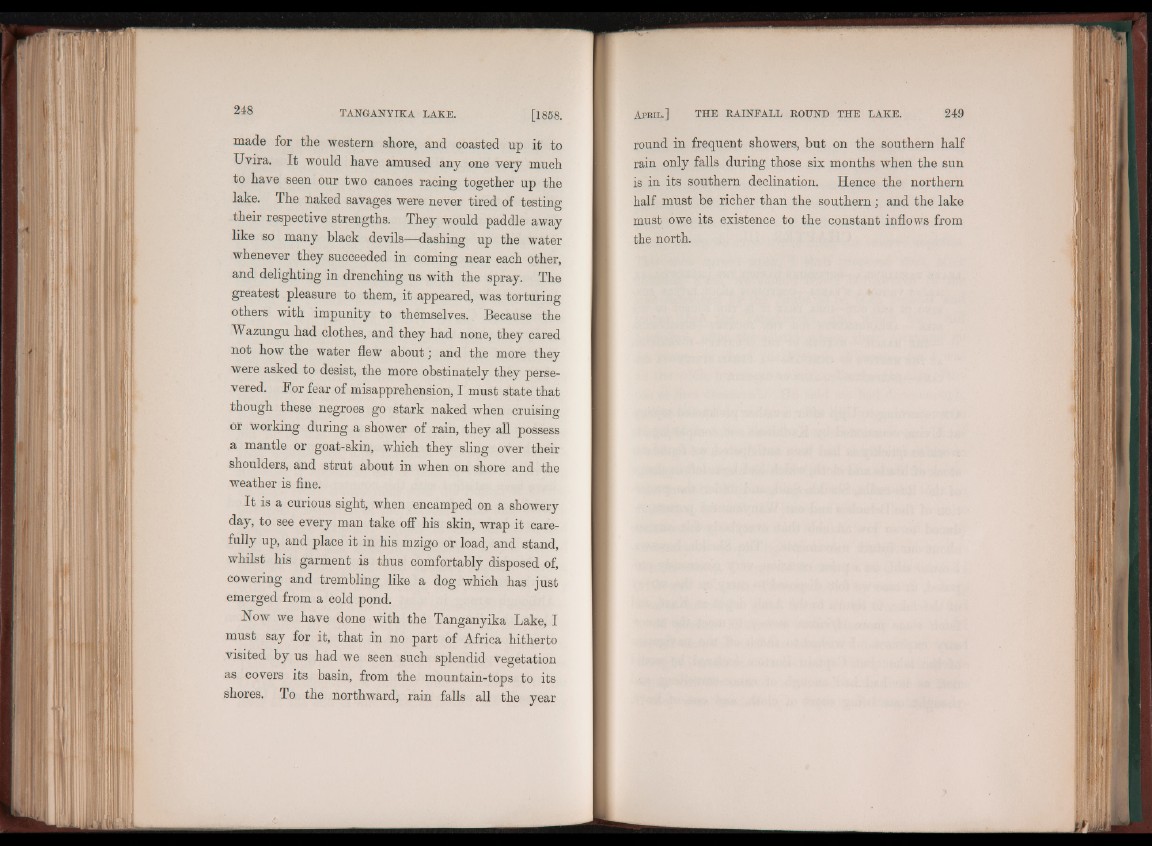
made for the western shore, and coasted up it to
Uvira. I t would have amused any one very much
to have seen our two canoes racing together up the
lake. The naked savages were never tired of testing
their respective strengths. They would paddle away
like so many black devils—dashing up the water
whenever they succeeded in coming near each other,
and delighting in drenching us with the spray. The
greatest pleasure to them, it appeared, was torturing
others with impunity to themselves. Because the
Wazungu had clothes, and they had none, they cared
not how the water flew about; and the more they
were asked to desist, the more obstinately they persevered.
For fear of misapprehension, I must state that
though these negroes go stark naked when cruising
or working during a shower of rain, they all possess
a mantle or goat-skin, which they sling over their
shoulders, and strut about in when on shore and the
weather is fine.
I t is a curious sight, when encamped on a showery
day, to see every man take off his skin, wrap it carefully
up, and place it in his mzigo or load, and stand,
whilst his garment is thus comfortably disposed of,
cowering and trembling like a dog which has just
emerged from a cold pond.
Now we have done with the Tanganyika Lake, I
must say for it, that in no part of Africa hitherto
visited by us had we seen such splendid vegetation
as covers its basin, from the mountain-tops to its
shores. To the northward, rain falls all the year
round in frequent showers, but on the southern half
rain only falls during those six months when the sun
is in its southern declination. Hence the northern
half must be richer than the southern; and the lake
must owe its existence to the constant inflows from
the north.